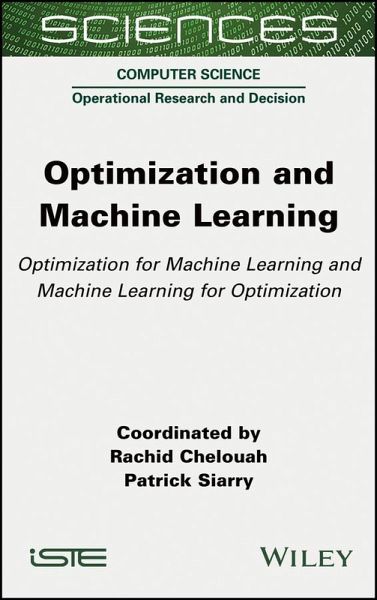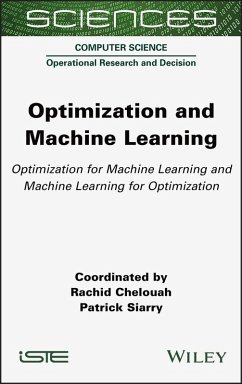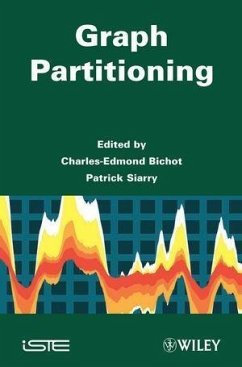
Optimization and Machine Learning (eBook, ePUB)
Optimization for Machine Learning and Machine Learning for Optimization
Redaktion: Chelouah, Rachid; Siarry, Patrick
Versandkostenfrei!
Sofort per Download lieferbar
139,99 €
inkl. MwSt.
Weitere Ausgaben:

PAYBACK Punkte
0 °P sammeln!
Machine learning and optimization techniques are revolutionizing our world. Other types of information technology have not progressed as rapidly in recent years, in terms of real impact. The aim of this book is to present some of the innovative techniques in the field of optimization and machine learning, and to demonstrate how to apply them in the fields of engineering. Optimization and Machine Learning presents modern advances in the selection, configuration and engineering of algorithms that rely on machine learning and optimization. The first part of the book is dedicated to applications w...
Machine learning and optimization techniques are revolutionizing our world. Other types of information technology have not progressed as rapidly in recent years, in terms of real impact. The aim of this book is to present some of the innovative techniques in the field of optimization and machine learning, and to demonstrate how to apply them in the fields of engineering. Optimization and Machine Learning presents modern advances in the selection, configuration and engineering of algorithms that rely on machine learning and optimization. The first part of the book is dedicated to applications where optimization plays a major role, and the second part describes and implements several applications that are mainly based on machine learning techniques. The methods addressed in these chapters are compared against their competitors, and their effectiveness in their chosen field of application is illustrated.
Dieser Download kann aus rechtlichen Gründen nur mit Rechnungsadresse in D ausgeliefert werden.













